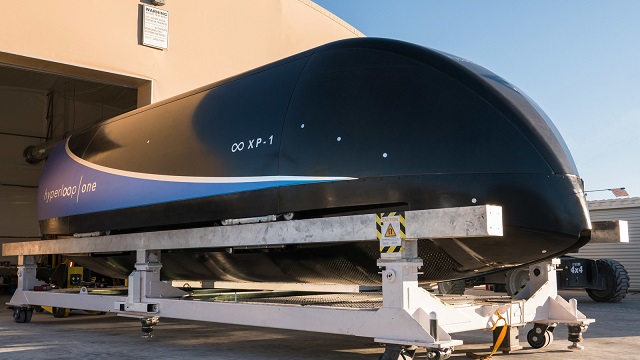Virgin Hyperloop One Sets New Speed Record
Virgin Hyperloop One has named Richard Branson as non-executive Chairman and has raised an additional $50 million with investments from Caspian Venture Capital and DP World. The company has also completed its third phase of testing, achieving historic test speeds of nearly 387 kilometers (240 miles) per hour (107 meters per second).
Branson joined the Virgin Hyperloop One board of directors in October 2017 after Virgin Group invested in the company and formed a global strategic partnership. Branson says the investment, made by existing partners, Caspian Venture Capital and DP World, sets up the company to pursue opportunities in key markets in the Middle East, Europe and Russia. The investment brings the total financing raised by Virgin Hyperloop One to $295 million since its founding in 2014.
"This investment provides Virgin Hyperloop One with a very robust financial platform for 2018," said Virgin Hyperloop One's CEO Rob Lloyd. "We continue to see extremely strong interest from world leaders globally looking to embrace Hyperloop to address critical infrastructure challenges. Our focus in 2018 will be on accelerating commercial agreements for both passenger and cargo projects."
The speed record was achieved at a test facility outside Las Vegas. The company tested a new airlock which helps transition test pods between atmospheric and vacuum conditions during its latest test campaign which was completed on December 15, 2017. All components of the system were successfully tested including the airlock, electric motor, advanced controls and power electronics, custom magnetic levitation and guidance, pod suspension and the vacuum. The tests were conducted in a tube depressurized down to the equivalent air pressure experienced at 200,000 feet above sea level. During operation, the pod lifts above the track using magnetic levitation and glides at airline speeds for long distances due to ultra-low aerodynamic drag.
The speed achieved was a significant increase over the company's previous record of 192 miles per hour, but less than the hyperloop’s theoretical maximum speed of 700 miles per hour. An additional 2,000 meters (1.2 miles) of track would likely be required to reach that velocity.

